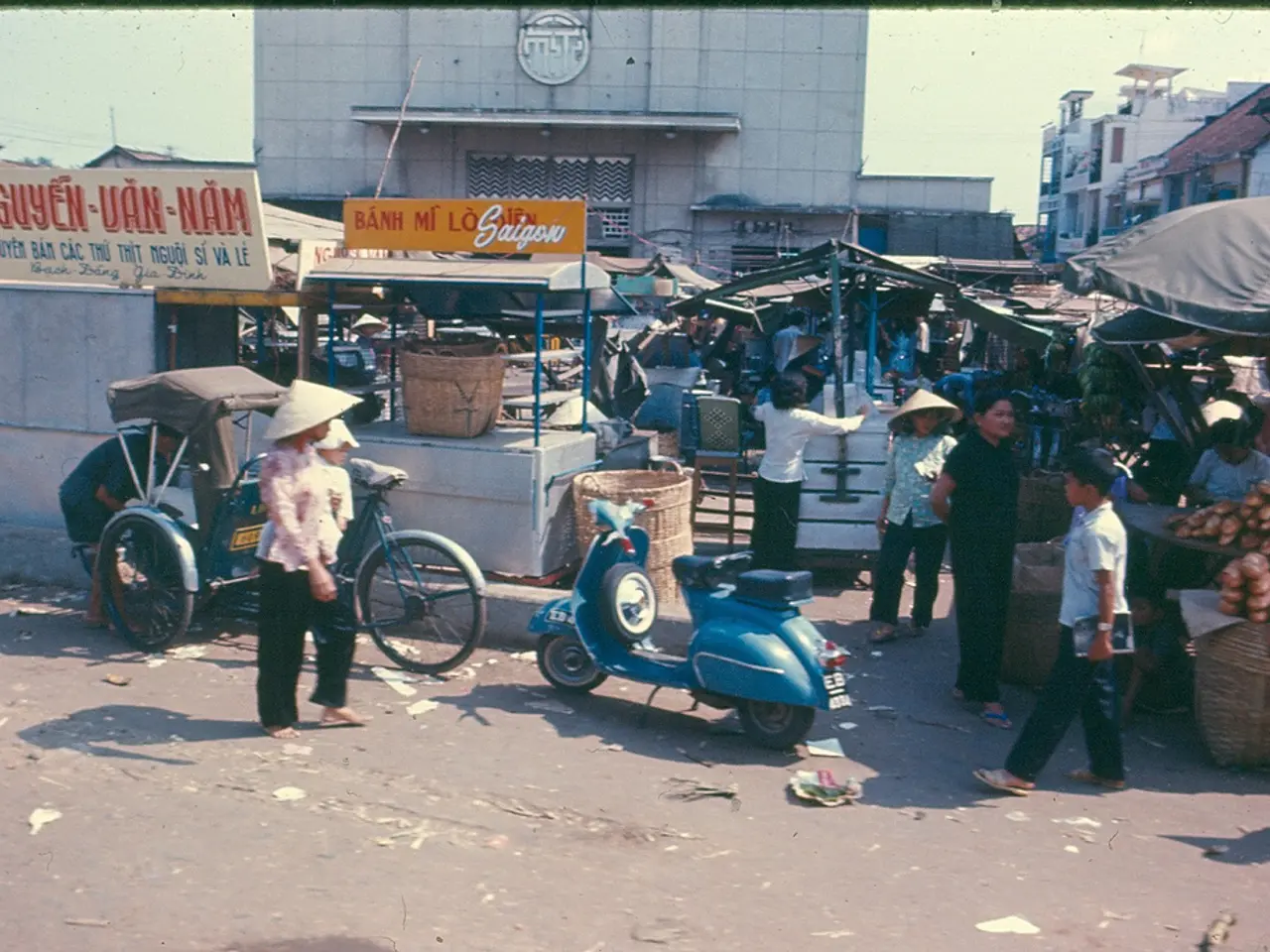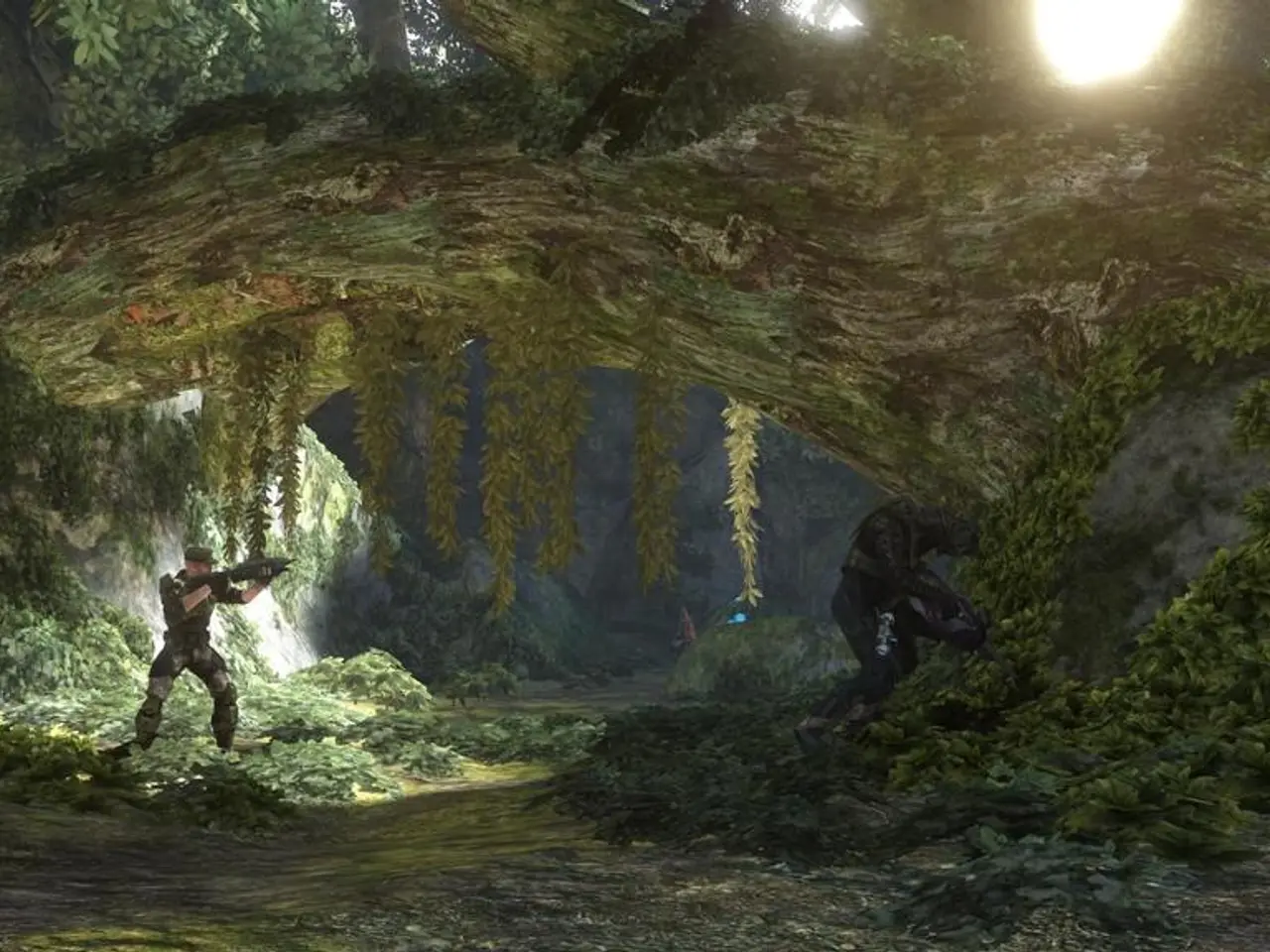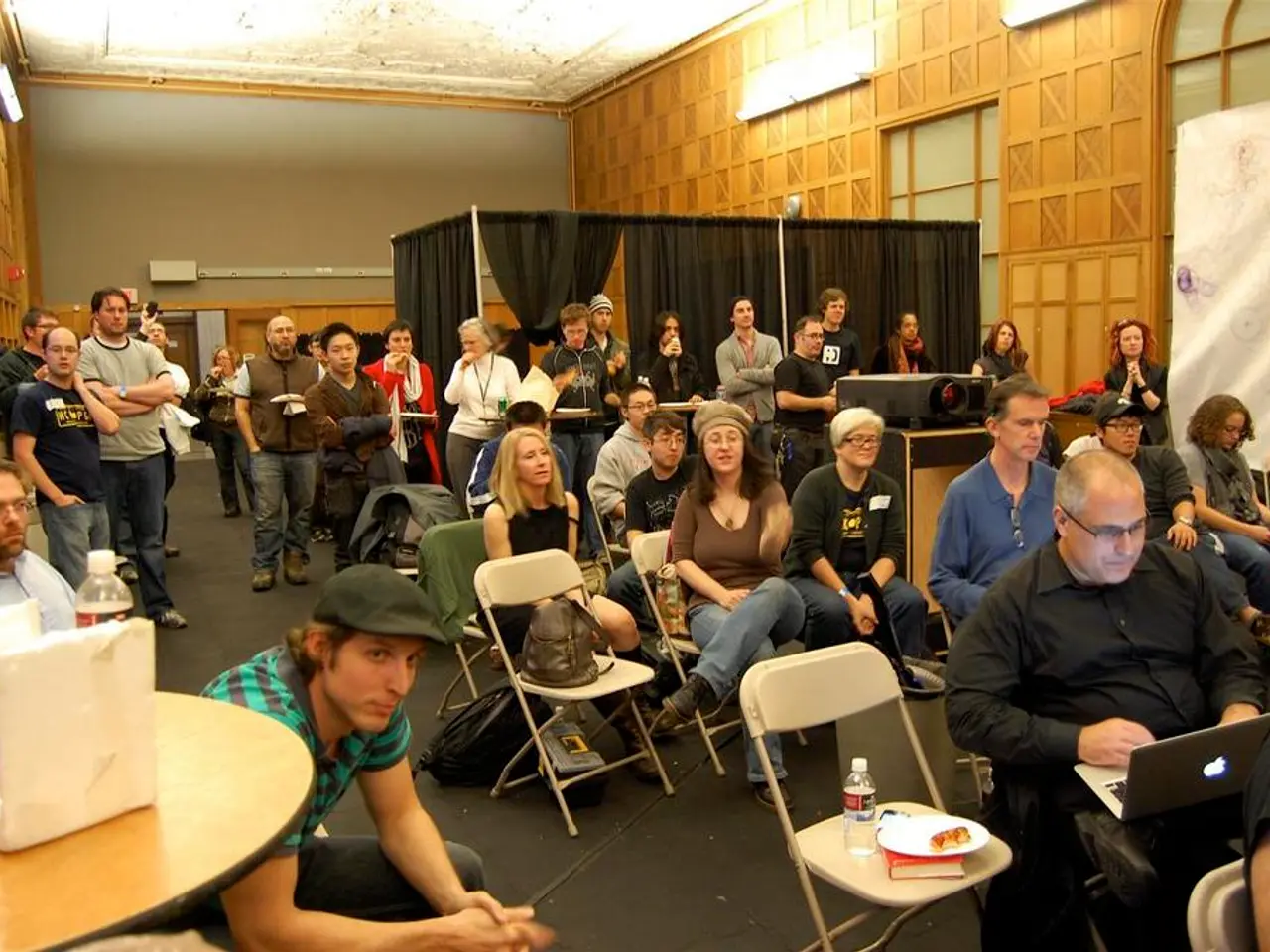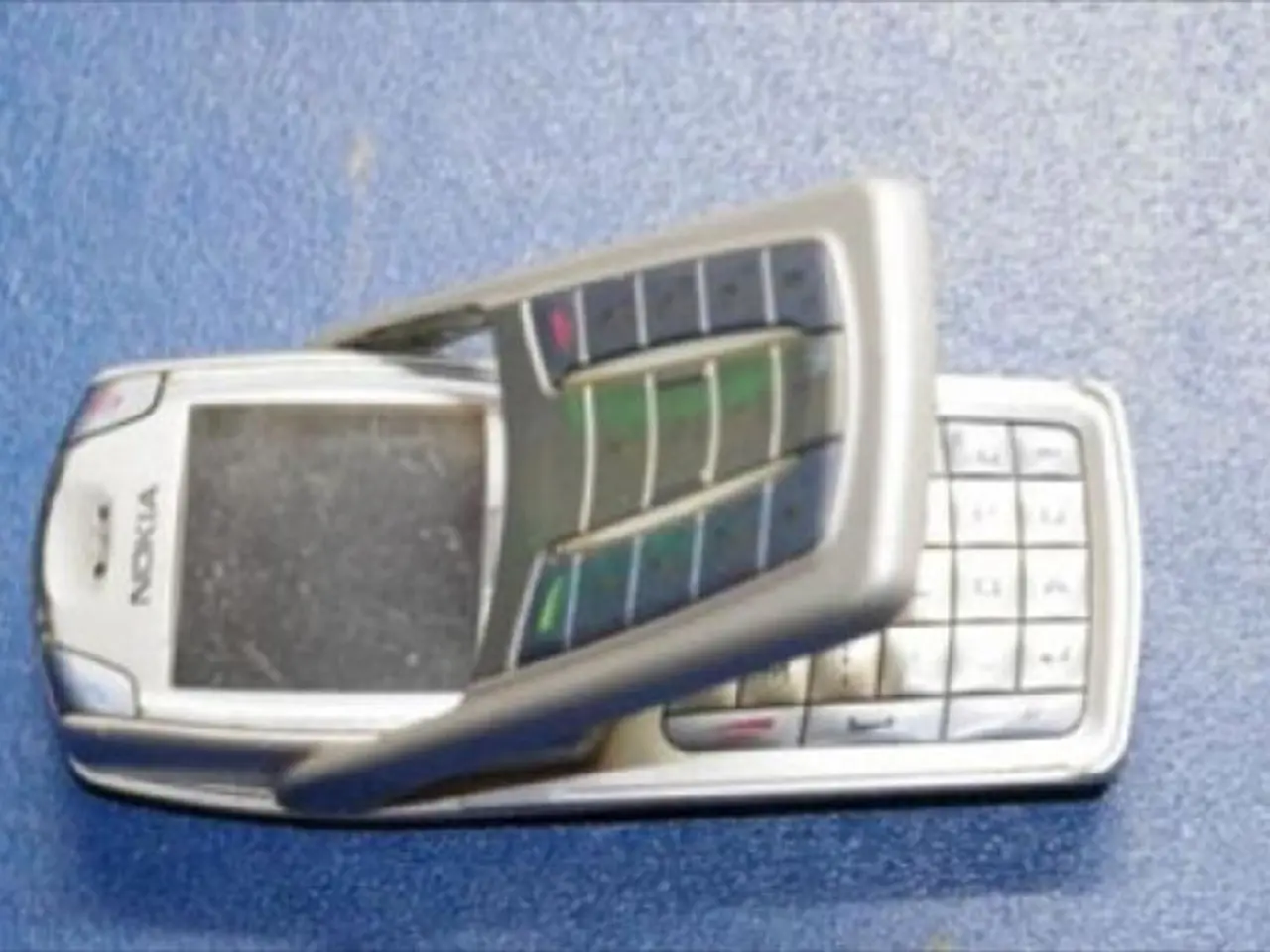Municipality advancing towards intelligent urban development
Münster, a vibrant city in northwest Germany, is taking significant strides towards a sustainable future by integrating innovative AI solutions into its waste management systems. The Smart City Münster initiative is spearheading this transformation, with a strong focus on promoting waste avoidance and circular economy principles.
One of the key projects under this initiative is the "Abfallfreie Quartiere" (waste-free neighborhoods) sub-project, led by the waste management department of Münster (awm). The city is collaborating with the Institute for Waste, Sewage, and Infrastructure Management GmbH (INFA) to scientifically evaluate the effectiveness and feasibility of these new technologies within the city.
AI is playing a significant role in optimising waste reduction in the waste-free neighborhoods project. The system supports data-driven strategies to avoid waste generation at the source and promotes circular economic models where resources are reused and recycled effectively.
AI-equipped waste collection vehicles are being tested in Münster's York and Oxford quarters. These trucks are designed to improve efficiency in collection routes, monitor waste levels, and potentially sort or identify waste types during collection to support circular processes.
The city is also looking to develop smart infrastructure, such as sharing lockers and AI-assisted sorting systems, to facilitate waste sharing, collection, or redistribution within the city's circular economy framework.
These innovations align with broader digitalization trends in sustainability, where AI and smart systems are deployed to reduce ecological impact and improve urban resource management. Münster's approach exemplifies how urban areas can leverage AI not just for operational efficiency but also for fostering sustainable, circular waste management practices.
Plastic and compostable bags are identified as the biggest problem in organic waste in Münster's model neighborhoods. To address this issue, each household in the model neighborhoods receives an information leaflet and a biowaste bin with paper bags. AI is being used on collection vehicles to improve waste separation and the circular economy in Münster.
The city is also working on measures for innovative urban development as part of the federally funded model project "Smart Cities". The federal government is supporting Münster's implementation of sustainable urban development concepts since 2019, with a funding rate of 65% of the total volume of 1.5 million euros.
In addition to its waste management initiatives, Münster is a city rich in culture. The Kunsthalle Münster is currently hosting the exhibition "We Are Full of Winds and Sea and Solar Threads" until September 21, 2025. The city also recently hosted the second S!NN Congress at the Messe- und Congress-Centrum Halle Münsterland.
The city's ultimate goal is to produce only valuable resources instead of waste by 2030. This ambitious target is being pursued through a combination of AI-driven waste avoidance strategies, smart waste collection systems, and the promotion of a circular economy.
[1] Smart City Münster: Waste-Free Neighborhoods (awm) and INFA. (n.d.). Retrieved from https://www.stadt-muenster.de/awm/abfall/ [2] Smart City Münster: AI in Waste Management. (n.d.). Retrieved from https://www.stadt-muenster.de/smartcity/smart-city-muenster/themen/smart-city-muenster/ai-in-der-abfallwirtschaft/
Environmental science plays a crucial role in evaluating the effectiveness and feasibility of AI-driven waste avoidance strategies in the waste-free neighborhoods project led by the waste management department of Münster (awm). The integration of AI technology in waste management systems is part of Münster's broader approach to leverage technology and smart systems for promoting a circular economy and reducing ecological impact in a sustainable urban development context.
Finance, in this context, is significantly linked to the federal government's support for Münster's implementation of sustainable urban development concepts, with a funding rate of 65% of the total volume of 1.5 million euros for the federally funded model project "Smart Cities" since 2019.




